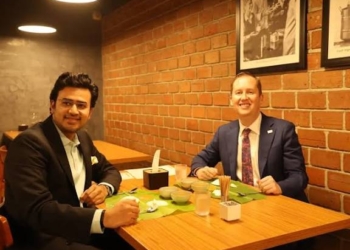The United States Citizenship and Immigration Services (USCIS) has introduced a significant change to the H-1B visa programme by requiring a one-time fee of $100,000 for all new H-1B visa petitions submitted after 12:01 am EDT (9:31 am IST) on September 21, 2025. The move applies to the FY 2026 H-1B lottery and any other new petitions filed beyond the specified time.
The proclamation, signed by President Donald Trump on September 19, aims to reform the H-1B programme, curb misuse, and prioritise opportunities for American workers.
No Impact on Existing Visa Holders
USCIS has clarified that the new fee does not apply to:
-
Petitions filed before the September 21 deadline
-
Existing H-1B visa holders
-
Renewal applications
-
Re-entry of current H-1B holders into the US
This measure is therefore limited to prospective applicants who have not yet filed their petitions.
Additional Reforms to Prioritise High-Skilled Workers
Alongside the fee introduction, the Department of Homeland Security (DHS) and the Department of State (DOS) have been authorised to coordinate implementation steps.
Further reforms to the H-1B programme include:
-
Revision of Prevailing Wage Levels: The Department of Labor is expected to propose rules to raise wage benchmarks, ensuring that H-1B roles are filled by highly skilled professionals.
-
Lottery Prioritisation: DHS is planning to prioritise high-paid, high-skilled workers in the H-1B lottery system over lower-wage applicants, aligning with the administration’s goal to attract top global talent.
-
Consular Guidance: The Department of State has issued updated guidance to US consulates worldwide for streamlined implementation of the new rule.
“Protecting American Workers”
USCIS described the move as a critical step toward reforming the H-1B system, “curbing abuses” and ensuring that the programme is used to hire “only the best of the best” temporary foreign workers.
This development has sparked mixed reactions from the Indian tech community, as many Indian professionals are among the largest beneficiaries of the H-1B visa programme. Industry experts have warned that while there may not be immediate disruption, the long-term impact could raise costs for US companies relying on skilled foreign workers.





























